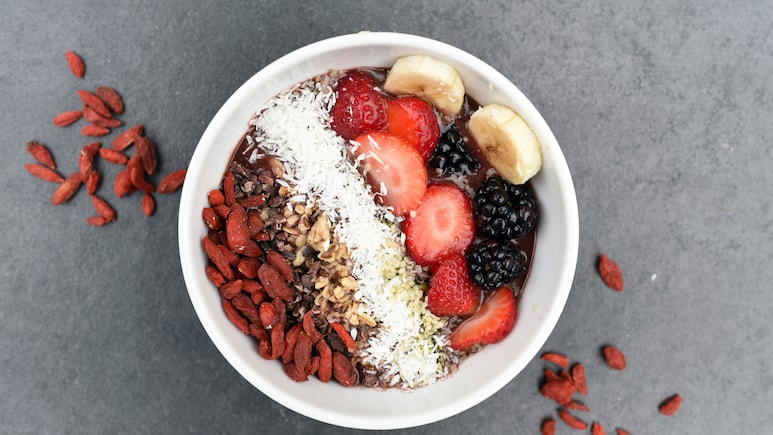
In today's wellness-driven world, superfoods have become a buzzword. From quinoa salads to green tea detoxes, many of us proudly add them to our daily diet, believing we're making the healthier choices. But here's the catch: eating a superfood the wrong way can do more harm than good. Understanding if the particular food is good for you and consuming it in best manner is the correct way to ensure you actually benefit from consuming these superfoods. Let's take a closer look at popular superfoods you might be consuming wrong and how to make the most of them.
Are you consuming these superfoods wrong?
1. Quinoa
The main issue with consuming quinoa is eating it without rinsing. Quinoa naturally contains saponins that are bitter compounds that can cause digestive discomfort. Make sure to rinse them thoroughly before cooking.
2. Turmeric
While turmeric is used liberally in Indian cuisine, some people may opt for a supplement instead. Taking turmeric supplements in excess can harm the liver in some individuals. You are encouraged to consume it in a natural form like in curries, milk, tadka, etc. Consume it with black pepper to boost curcumin absorption.
3. Makhana
Makhana is known as a guilt-free alternative to chips and other high fat savoury snacks which leads to excessive consumption. And like any other food makhana is not good for you in excess. Make sure to keep the serving around 30-40 grams, excess can lead to constipation and mess up your daily caloric intake by overloading it.
4. Green tea
While green tea is encouraged and provides many benefits, consuming it in big amounts or empty stomach can do more harm than good. Limit to 2–3 cups daily, and avoid early-morning empty-stomach consumption to reduce acidity.
5. Chia seeds
Chia seeds are one of the most popular health foods of all times. It continues to stay relevant in the health sphere but some people might be still consuming it wrong. Chia seeds soak up a lot of water and consuming them raw and dry can cause choking and bloating. Always soak them in water, yogurt or milk for 20 minutes before consuming them.
6. Goji berries
These berries are known to provide various health benefits but it may not interact well with certain common medications. Make sure to check with your doctor before consuming to ensure they are fit for you to have.
7. Moringa
Similar to turmeric, moringa has been globally recognised for its amazing health benefits. To make it accessible for everyone, it is popularly found in the form of powder and capsules. However, it is best consumed fresh. You can add moringa leaves in dals, curries, soups, etc. and boost your intake of vitamins & minerals.
8. Amla
Amla or also known as Indian gooseberry is another very popular superfood. You should avoid consuming it in processed forms such as candies, pickles, murabba, etc. since they are loaded with sugar and salt. Go for fresh amla juice, raw slices or dried powder instead. When consumed correctly, it can boost immunity, skin health and other health aspects.
Superfoods are powerful, but they're not magic bullets. The way you prepare, portion, and consume them makes all the difference. No single food can replace a balanced diet of dals, whole grains, fruits, vegetables, and traditional spices. Superfoods work best as add-ons, not as shortcuts.
Disclaimer: This content including advice provides generic information only. It is in no way a substitute for a qualified medical opinion. Always consult a specialist or your doctor for more information. NDTV does not claim responsibility for this information.
References
- National Library of Medicine (NCBI Bookshelf). LiverTox: Clinical and Research Information on Drug-Induced Liver Injury. “Turmeric” entry. Bethesda (MD): National Institute of Diabetes and Digestive and Kidney Diseases; Updated June 16, 2025.
- Systematic Review (PMC). A comprehensive review on the hepatotoxicity of herbs used in the Indian (Ayush) systems of alternative medicine. Medicine (Baltimore), April 2024.
- NCBI Bookshelf (LiverTox). Moringa entry. July 15, 2024. States that while Moringa oleifera is generally well tolerated, it has been implicated in at least one case of acute hepatitis.
- Wei-Chafen L., Villarruel-Lopez A., Gao X., et al. (2022). Moringa Oleifera Lam. in Cardiometabolic Disorders: A Systematic Review of Recent Studies and Possible Mechanism of Actions. PMC. Discusses gut and metabolic effects of moringa polysaccharides including potential benefits and inflammatory responses in animal models.
Track Latest News Live on NDTV.com and get news updates from India and around the world

